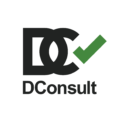
Crafting Resilient Businesses through Proactive Strategies using ISO 9001, ISO 45001, and ISO 14001
Today, we’re diving into the world of ISO standards – ISO 9001, ISO 45001, and ISO 14001 to be precise. These might seem like a jumble of numbers and letters on first glance, but I assure you they are crucial for businesses aiming to build resilience through proactive planning and risk control. It’s essential to understand that these aren’t just fancy acronyms. They represent internationally recognised standards designed to ensure quality (ISO 9001), occupational health and safety (ISO 45001), and environmental management (ISO 14001).
The dynamic business environment of today demands more than just good products or services from organisations. It also seeks assurance about the holistic quality of operations, care for worker’s safety, as well as concern for environmental impact. This is where our protagonists – the three key ISO standards come into play. Staying compliant with these can help businesses reassure stakeholders that they are not only committed to delivering top-notch products or services but also handle their operations responsibly.
By implementing ISO 9001, organisations set up a framework for quality management which helps them meet customer requirements consistently while improving efficiency in processes. On the other hand, ISO 45001 focuses on reducing workplace accidents by creating safer working conditions—essentially managing risks proactively rather than reacting when things go wrong. Lastly, through ISO 14001, companies demonstrate their commitment towards minimising negative impacts on the environment by carefully managing environmental responsibilities.
Understanding ISO 9001, ISO 45001 and ISO 14001
Let’s first take a look at the role of these three International Standards in shaping a resilient business. They aren’t just acronyms or buzzwords; they’re integral parts of an effective business strategy.
ISO 9001 is all about quality management. It provides a framework for companies to ensure their products and services consistently meet customer requirements. From manufacturers to service providers, businesses across various sectors have embraced this standard to improve efficiency and customer satisfaction levels.
Now, onto ISO 45001 – it’s focused on occupational health and safety management. By implementing this standard, businesses can proactively prevent work-related injury or ill health. It’s not just about ticking a box for compliance; it’s about creating safer working environments that protect employees’ well-being and productivity.
Lastly, we have ISO 14001 which centres around environmental management. With rising concerns over climate change and sustainability, this standard offers guidelines for reducing environmental impacts. Companies adopting this approach are demonstrating commitment towards protecting our planet while also gaining credibility with socially conscious consumers.
Each of these standards plays its part in building resilience into your business:
- ISO 9001 helps create robust processes that deliver consistent results.
- ISO 45001 promotes safety culture contributing to lower accident rates.
- ISO 14001 encourages sustainable practices mitigating environmental risks.
In combination, they form the backbone of proactive planning and risk control strategies that support operational continuity even when faced with unexpected challenges. While the implementation may require initial investment in time and resources, the long-term benefits in terms of improved operational efficiency, reduced risks, enhanced reputation among stakeholders make it worthwhile pursuit for any forward-thinking business.
Remember though: simply obtaining certification isn’t enough – maintaining these standards requires ongoing effort from everyone in your organisation!
If you want to learn how DConsult can help you craft resilience in your business, please Contact DConsult
